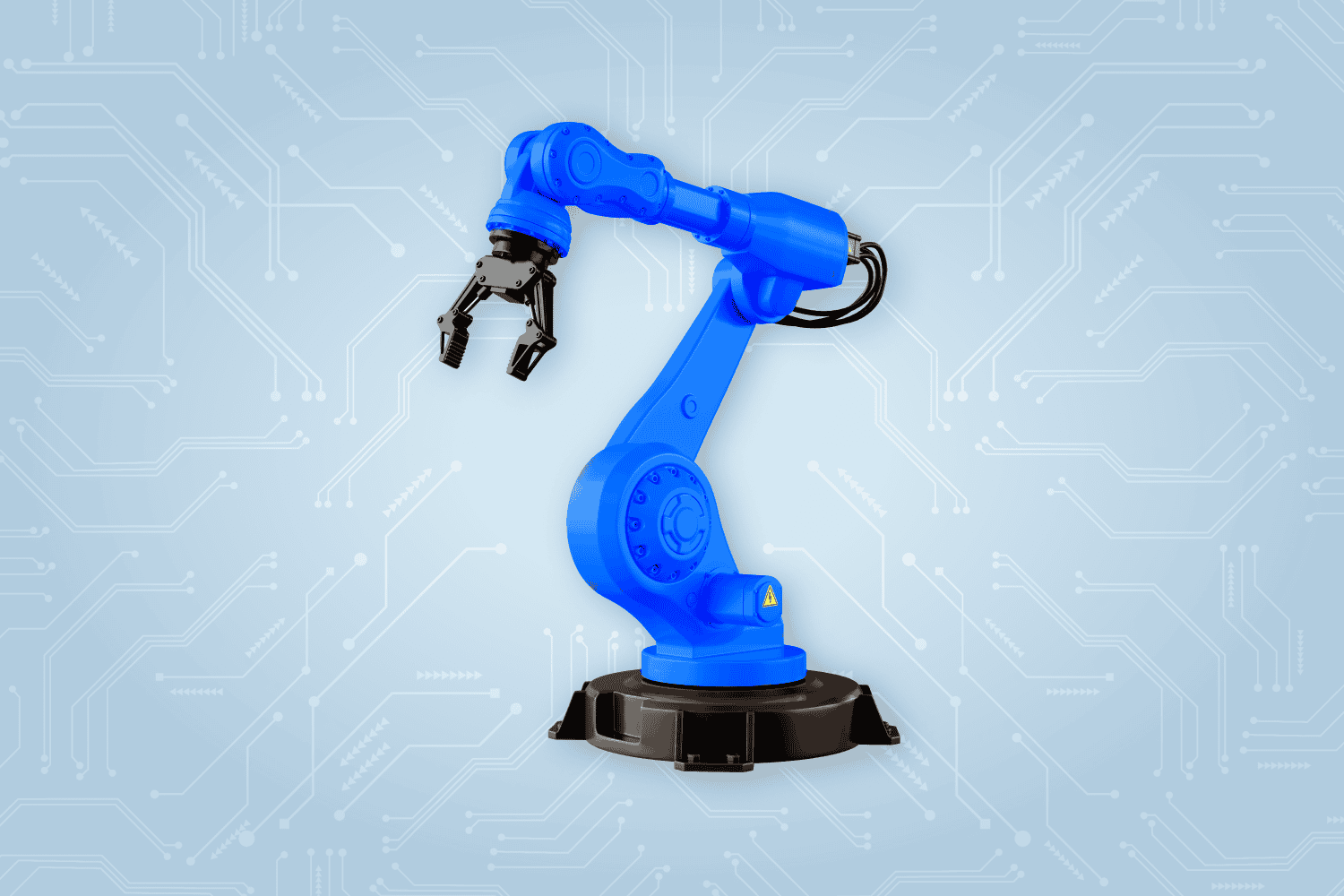The manufacturing and energy industries are rapidly evolving, and the advent of artificial intelligence (AI) is quickly transforming how we approach predictive maintenance, supply chain management, and process management.
AlphaSense’s Expert Insights boasts an extensive range of firsthand perspectives from manufacturing and energy experts covering the latest trends and topics. These expert perspectives can be found in our expert transcript library and enable leaders to identify the trends and implications for the manufacturing and energy sectors at a deeper level.
Below we explore how AI is transforming the manufacturing and energy sectors by sharing valuable expert insights on exciting developments in predictive maintenance, supply chain management, and process management.
AI Adoption in Predictive Maintenance
Predictive maintenance utilizes AI software and sensors to detect when machine failure is likely. By analyzing vast streams of data—from sensor readings to historical performance metrics—AI algorithms can detect subtle patterns and anomalies indicative of impending issues. This predictive capability allows for timely interventions, such as preemptive repairs or component replacements, minimizing downtime and maximizing asset lifespan.
Avoiding machine failure can significantly reduce downtime, lost revenue, and costly repairs. Mordor Intelligence notes that Siemens’ Smart Factories, General Electric’s Brilliant Factory and Predix, and Bosch are key players in the segment. Startups such as Infinite Uptime and Seeq are also notable participants in the space.

Predictive maintenance applications can generate significant return on investment (ROI) for users. A former Emerson engineer, found in the AlphaSense expert transcript library, estimates maintenance cost reductions ranging from ten to one hundred percent based on the cost of repair:
“If we say the 10%-12% cost benefit will be there by just doing a predictive maintenance. If there is no breakage, then there is a 100% saving of your processes.”
– Former Engineer, Emerson | Expert Transcript
While AI in predictive maintenance can reduce maintenance expenses anywhere from ten to one hundred percent, software implementation across these sectors can be tricky. For instance, a former Rockwell manager notes that it takes approximately two years to generate positive ROI on predictive maintenance projects:
“Within two years, you really get your first setup of a return.”
– Former Manager, Rockwell | Expert Transcript
Plant Engineering, a plant engineering trade journal, notes the implementation of predictive maintenance can be difficult as they are not plug-and-play solutions. Additionally, the authors note that predictive maintenance does not completely eliminate all repairs.
“Before the data can be used for predictive maintenance, it must be cleansed and prepared for modeling to reflect the specific needs and measurements of any factory floor. Once the unique data is ready, plant floor managers and technology experts must team up to define what a machine failure is, and to make the definition as explicit as possible, which is trickier than it sounds.
There is no denying predictive maintenance can significantly reduce machine failure, but it is not infallible. Unfortunately, whether from a human or a machine, there are some failures that are almost impossible to predict.”
– Plant Engineering | Trade Journal
Additionally, a former Rockwell manager notes that many predictive maintenance software packages are very complex and deter users. The expert notes that it is imperative for the user interface to be intuitive; otherwise, users will not adopt it.
“The biggest problem I see is always adoption. If anything that I think of myself technology-wise, the hardest piece is getting to have people do change management or do something new. What’s getting embedded in the product is new to try to really simplify the user interface or help the user make better decisions.”
– Former Manager, Rockwell | Expert Transcript
AI Adoption in Supply Chain Management
AI-powered supply chain solutions can create a digital overview of the entire supply chain model through demand forecasting, real-time monitoring, and real-time inventory management, enabling organizations to adapt more easily and optimize every link in the supply chain.
Organizations can proactively adjust production schedules, inventory levels, and distribution routes to minimize costs and maximize customer satisfaction by accurately predicting demand fluctuations and supply chain disruptions.
Industries operating disparate and dangerous facilities, such as energy and mining firms, in particular, can greatly benefit from AI adoption in supply chain management.
“By eliminating the need for manual inspections of pipelines in difficult-to-access locations, for instance, uncrewed aerial vehicles like drones may significantly disrupt the industry. These can demonstrate value in perilous circumstances.”
– Mordor Intelligence | Report

AlphaSense experts argue that supply chain management AI solutions can reduce logistics costs by 12%, but users must be wary of opaque or “black-box” solutions. A “black box” refers to a complicated electronic device whose internal mechanism is usually hidden from or unknown to the user, where only the inputs and outputs are visible to the user.
According to 101 Blockchains, a Web3 research platform, AI has been successful in reducing supply chain costs:
“Early adopters of AI have successfully reduced their logistics costs by 15%. In addition, supply chain AI has improved service excellence by 65% and elevated inventory levels by 35%.”
– 101 Blockchain | Industry Journal
However, one major challenge for implementing AI in supply chain management is preventing black box solutions, as some AI systems prevent users from achieving a full understanding of the supply chain solution.
“The lack of transparency in certain AI systems could lead to selection of biased data sets to create scenarios that have poor visibility.”
– 101 Blockchain | Industry Journal
AI Adoption in Process Management
AI can improve process production performance by streamlining steps, employing data-driven decisions, optimizing energy usage, improving quality control, and reducing waste. Integrating Internet of Things (IoT) devices and AI algorithms in process management results in a more responsive and data-driven manufacturing environment.
AI in process management solutions can enable firms to produce more output with fewer employees in undesirable locations; however, software compatibility with existing hardware can be challenging.
According to Plant Engineering, the continuous learning abilities of AI reduce manufacturing costs.
“Danone uses machine learning to improve demand forecasting. This led to a 20% increase in the accuracy of their predictions and a 30% reduction in lost sales.”
– Plant Engineering | Industry Journal
Additionally, AI can significantly benefit industries experiencing difficulties attracting labor, enabling firms to produce more output with fewer people.
“A lot of these oil and gas plants, they’re not desirable locations, they’re in remote locations, and so being able to achieve autonomous operations which AI is a big key enabler for that. I often hear from oil and gas customers is that there are maybe more assets we have to manage with less people. There’s more work required with less people.”
– Former Manager, Rockwell | Expert Transcript
Systems integration difficulties represent the largest obstacle to integrating AI in plant operations. The complexity of combining new AI software with existing hardware can prevent firms from implementing AI.
“Older systems might not have the capability to handle AI-based analytics, requiring significant upgrades or even replacements, which can be costly and disruptive to ongoing operations.”
– Plant Engineering | Industry Journal
Additionally, AI software has large data storage requirements, which can easily eclipse the capacity of most firms.
“The sheer volume of data generated by AI systems can strain existing data management infrastructure.”
– Plant Engineering | Industry Journal
While AI solutions can improve manufacturing processes, managers must consider software, ease of use, traceable solutions from AI software, and backward compatibility with existing hardware.
Discover key expert insights and predictions for energy and industrials in our report, Key Predictions for Energy and Industrials in 2024.
Track Key Trends in Manufacturing and Energy with Expert Insights
By harnessing the power of AI for predictive maintenance, supply chain management, and process management, manufacturers and energy providers can unlock new levels of efficiency, reliability, and competitiveness in an increasingly complex and dynamic business landscape.
AlphaSense Expert Insights can reduce the time it takes investment researchers to find critical market insights across the manufacturing and energy sectors and allocate more time to strategic decision-making.
Evolve your primary market research across the energy and manufacturing industries when you start your free trial with AlphaSense today.




